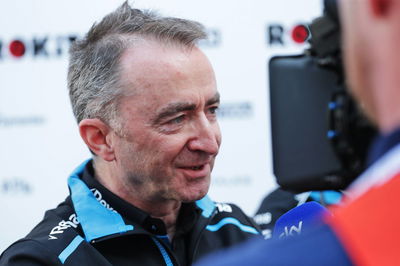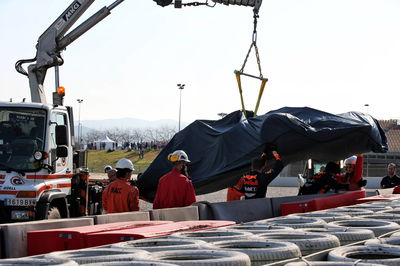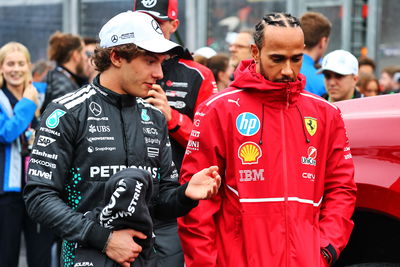Williams to achieve same mileage as planned despite delays – Lowe
Williams technical boss Paddy Lowe is confident his team will reach its planned mileage target despite sitting out the opening two-and-a-half days of Formula 1 pre-season testing due to delays with its FW42 car.

Williams technical boss Paddy Lowe is confident his team will reach its planned mileage target despite sitting out the opening two-and-a-half days of Formula 1 pre-season testing due to delays with its FW42 car.
Lowe has come under fire after the British squad was forced to cancel its shakedown run and also miss the start of pre-season testing due to delays in building its 2019 F1 car. Having finally got underway after missing the majority of the first test, Lowe says Williams has enjoyed trouble-free running and made significant progress despite drivers’ concerns.
After George Russell notched up 140 laps for Williams on the penultimate day of testing, and his final day in the FW42 as he hands over to Robert Kubica tomorrow, Lowe is certain the team can complete the same mileage it had aimed for from a full eight days of pre-season testing.
“We are doing very well in terms of mileage and rate of learning,” Lowe said. “We did miss two-and-a-half days and that did put us on the backfoot but barring that issue since last Thursday we’ve had very, very strong reliability and achieved the programme that we set out to do each day.
“Robert is in tomorrow doing his qualifying and race distances. If we stay on this plan we will have done the same mileage by the end of tomorrow and consumed all sets of tyres available that we would have had for the full eight days.
“So actually a lot of the limitations in pre-season testing is the number of new sets of tyres that you have available. In general to do an experiment you need new tyres so that becomes one of your primary limitations. In terms of mileage and number of experiments we will have achieved the same amount as we originally intended.”
Lowe has conceded Williams lost out in data analysis at the start of pre-season testing, with teams working overnight shifts following each day of running to gain a greater understanding of its F1 cars before the next day of track running, which it will struggle to recover against its rivals.
“I guess the major disadvantage is what we do at night which is taken from what we’ve learnt from the data we gather to invent different tests and different experiments for the next day,” he said. “Inevitably we’ve got a couple less of those learning loops compared to the other competition.”
The Williams technical chief also refused to be drawn on what caused the team’s delays until a full investigation into its problems is completed.
“Frankly I don’t even know the answer because it will take a lot of investigation and analysis,” he said. “All I can say is there won’t be a single answer or a matter of saying ‘it is that which went wrong’.
“I would say looking at it as a whole in general the thing that caught us out is the sheer quantity and complexity of parts you have to produce to make a Formula 1 car these days. These cars are the most complicated cars in the history of Formula 1.
“The bottom line is we didn’t have all the parts from day one and I am sure that was a strong factor and we got the estimation wrong.”











